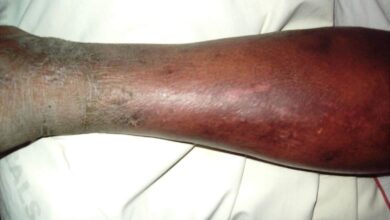Nerve wracking: Symptoms, treatment and medication

Nerve wracking is something that people use to refer to anxiety or stress. Anxiety is a type of mental health condition that may result in some kind of unknown tension and pressure.
For some people, anxiety can also cause panic attacks and extreme physical symptoms, such as chest pain. This is a state that we refer to as of nerve wracking.
The causes of anxiety and anxiety disorders can be complicated. A combination of factors, including genetic and environmental reasons, is likely to play a role.
However, it is clear that some events, emotions or experiences can cause anxiety symptoms to begin or can make them worse. These elements are called triggers.
What are the symptoms of nerve wracking?
Since we refer nerve wracking as to a condition of stress or anxiety, the symptoms of nerve wracking involves the signs that we face during anxiety or stress. Some of the common symptoms of nerve wracking include:
• Nausea and Dizziness
• Fear of dying
• Numbness or tingling in the extremities or throughout the body
• Chills or hot flashes
• Sudden and overwhelming fear Palpitations
• Feeling of suffocation
• Chest pain
What are the treatments for nerve wracking?
Many things may fall under nerve wracking, including panic attacks. Many of us may have one or two panic attacks in our lifetime, and the short episodes lead to nothing else. But for some people, much more happens.
Fortunately, treatment can go a long way to stop them. Doctors generally treat panic attacks by preparing people with psychological therapy, medication, or both. Whatever path you and your doctor take, it will take some time to work, so try to be patient.
When people stick to their treatment plan, the vast majority of them find relief and have no permanent problems regarding nerve wracking.
You may be interested to know about Ashwagandha for anxiety disorders
Starting the treatment
A rapid heartbeat or other discomfort accompanying an attack can resemble other diseases, such as heart disease. Therefore, the doctor will likely begin by performing a full physical exam before performing full treatment to nerve wracking.
That way, they can make sure the symptoms aren’t coming from a disease they were unaware of. If you don’t have such a medical condition, your doctor may send you to speak to a trained psychologist or psychiatrist to recognize when someone has had panic attacks.
Your doctor will combine the information from the consultant with his own observations to diagnose what is wrong. When someone repeatedly has attacked, doctors call it a panic disorder.
Speech therapy
Treatment may begin with speech therapy. You will sit down with a counsellor who can help you understand what panic disorder is and how to manage it.
As nerve wracking’s treatment continues, therapy should help you understand the situations, thoughts, or feelings that are causing your attacks. Once you understand what is happening, those triggers have less power to cause problems.
Counselling should also show you that the physical effects of the seizures don’t really hurt you. With your therapist, you will process your symptoms safely and gradually until they seem less scary.
This can also help the seizures go away. You will also learn relaxation techniques that can help you manage attacks when they occur. If you can control your breathing, for example, you could reduce a panic attack. It could also make the next one less likely. You must practice these skills regularly in your daily life to get the benefit.
You should also have a look at how brokenness can lead to stress.
What are the medications?
Your doctor may decide that medications should be part of your therapy to reduce the physical symptoms of your attacks. It could be part of the first steps of nerve wracking treatment as:
They may prescribe:
• An antidepressant
• An anti-anxiety medicine
For people with substance use disorders, doctors may prescribe other medications. Medicine to soften irregular heartbeats if you have one. You and your doctor may need to try more than one medicine before finding the one that works best. Some people do better with more than one type.
You can check here if you have a broken heart syndrome.
Panic attacks vs Panic disorders
We can’t exclude panic attacks and panic disorders while talking of nerve wracking. Not all panic attacks are caused by a panic disorder. In other words there are some other conditions can trigger a panic attack. They may include:
• Mitral valve prolapse
• Hypoglycaemia
• Hyperthyroidism
• Heart attacks
• Social phobia
• Agoraphobia
Post-traumatic stress disorder (PTSD)
Generalized anxiety disorder is an excessive concern and unrealistic for a period of at least six months. This is at least associated with three of the symptoms mentioned as follows:
• Difficulty concentrating
• Irritability
• Muscle tension
• Sleep disturbances
• Personality change
• Restlessness
• Fatigue
Panic attacks are usually short and last less than 10 minutes, although some of the symptoms may persist longer.
If you ever had a panic attack in your lifetime, you are more susceptible to panic attacks than those who never had a panic attack. When attacks occur repeatedly and there is concern about having multiple episodes, a person is considered to have a condition known as panic disorder.
People with nerve wracking can be extremely anxious and fearful, as they cannot predict when the next episode will occur. Panic disorder is quite common, affecting approximately 6 million adults in the United States. The symptoms of this may start right from early childhood. Additionally, women are even more susceptible to this as compared to a man.
Conclusion
Among so many given methods to avoid nerve wracking, daily exercise can be a helpful treatment for. If you think exercise works for you, make an effort to take brisk walks or participate in an active sport that you enjoy.
Bring your heart rate into the target range for your age for at least 30 minutes each time you exercise. Since nerve wracking is often accompanied by shallow breathing, deep breathing exercises can also be helpful.




